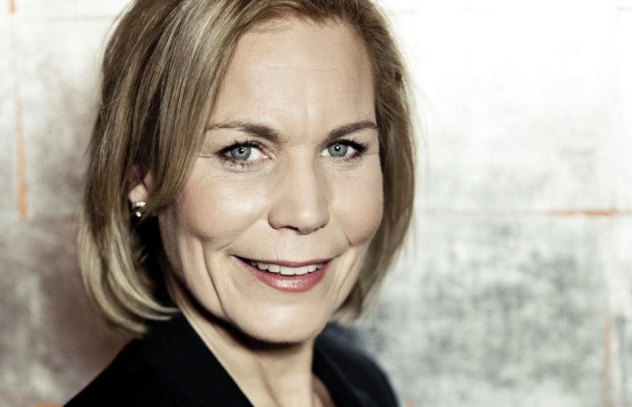
UNAIDS welcomes Gunilla Carlsson as new Deputy Executive Director, Management and GovernanceGunilla Carlsson is known for her dynamic leadership and deep knowledge of the issues.
GENEVA, 12 December 2017—United Nations Secretary-General António Guterres has appointed Gunilla Carlsson as the new UNAIDS Deputy Executive Director, Management and Governance, and Assistant Secretary-General of the United Nations.
“Gunilla Carlsson is known for her dynamic leadership and deep knowledge of the issues,” said UNAIDS Executive Director Michel Sidibé. “She is not a business-as-usual leader. I know her innovative approach and extensive network will be critical in taking UNAIDS to the next level.”
Ms Carlsson served as an elected member of the Swedish Parliament from 2002 to 2013 and as Minister for International Development Cooperation from 2006 to 2013. She also served as an elected member of the European Parliament from 1995 to 2002.
A strong leader in global health and development, Ms Carlsson was a member of the UNAIDS and Lancet Commission: Defeating AIDS—Advancing Global Health and a member of the World Bank Gender Advisory Council and served on the United Nations High-Level Panel on the Post-2015 Development Agenda. Currently, she is a senior adviser to the African Development Bank and serves on the board of Gavi, the Vaccine Alliance, as Vice-Chair.
Ms Carlsson will assume her new role in early 2018. She succeeds Jan Beagle, who was appointed United Nations Under-Secretary-General for Management in June 2017.
“I wish to extend my sincere appreciation to Joel Rehnstrom for serving UNAIDS as Acting Deputy Executive Director,” added Mr Sidibé.
UNAIDS
The Joint United Nations Programme on HIV/AIDS (UNAIDS) leads and inspires the world to achieve its shared vision of zero new HIV infections, zero discrimination and zero AIDS-related deaths. UNAIDS unites the efforts of 11 UN organizations—UNHCR, UNICEF, WFP, UNDP, UNFPA, UNODC, UN Women, ILO, UNESCO, WHO and the World Bank—and works closely with global and national partners towards ending the AIDS epidemic by 2030 as part of the Sustainable Development Goals. Learn more at unaids.org and connect with us on Facebook, Twitter, Instagram and YouTube.
WHAT IS PANCAP?
PANCAP is a Caribbean regional partnership of governments, regional civil society organisations, regional institutions and organisations, bilateral and multilateral agencies and contributing donor partners established on 14 February 2001. PANCAP provides a structured and unified approach to the Caribbean’s response to the HIV epidemic, and coordinates the response through the Caribbean Regional Strategic Framework on HIV and AIDS to maximise efficient use of resources and increase impact, mobilise resources and build the capacity of partners.
What are the Global AIDS Strategy 2021–2026 targets and commitments?
If targets and commitments in the strategy are achieved:
- The number of people who newly acquire HIV will decrease from 1.7 million in 2019 to less than 370 000 by 2025
- The number of people dying from AIDS-related illnesses will decrease from 690 000 in 2019 to less than 250 000 in 2025.
- The goal of eliminating new HIV infections among children will see the number of new HIV infections drop from 150,000 in 2019 to less than 22,000 in 2025.
What are the 95-95-95 Targets for ending AIDS?
- 95% of People Living with HIV know their HIV status;
- 95% of people who know their status on treatment; and
- 95% of people on treatment with suppressed viral loads.
HELPFUL LINKS:
Global AIDS Strategy 2021–2026, End Inequalities, End AIDS
https://pancap.org/pancap-documents/global-aids-strategy-2021-2026-end-inequalities-end-aids/
Caribbean Regional Strategic Framework on HIV and AIDS (CRSF) 2019-2025
https://pancap.org/pancap-documents/caribbean-regional-strategic-framework-2019-2025/
